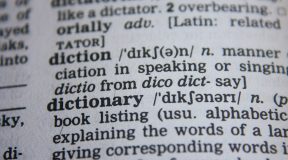
In everyday life, the concept of flow-state is baked into a set of rules. Many things help people achieve flow, but for our purposes here we’re going to discuss how your content can help people achieve a feeling of flow that’s useful in their efforts to find answers.

Flow state, according to Kotler in Rise of Superman, comes in 4 stages: (for this example, your readers flow state summarized and simplified)
- Struggle (problem, instigating event)
- Analysis (analyze the problem and start gathering data for research)
- Flow-State (where the action/solution is solved through action/research mode/zone)(this stage can be interrupted by a bad experience, i.e. article with no useful data, no structure to quickly see if their answers are there, etc)
- Recovery (where they analyze the data, experience, and thinking generated in your research, failures that came, and come up with more questions and start back at struggle/researching).
Recovery is the one stage that changes for research flow state. Instead of recovering they go into “reward” stage, where flow generated their analytical journey from your article’s helpful and potent information to gathering more data on other pages then ultimately feeling confident enough to solve the problem, call the contractor, and the reward is a feeling of competence.
People researching are in the analysis stage. If they land on the right informative articles this leads to flow state, but if they land on useless information, time-wasting unformatted articles without a clear theme and so on, they find themselves bouncing between flow and struggle without reward, thus enter recovery as well as the struggle to find the information they need.
Struggle generates information, pushes you into the now (fight or flight), and opens the possibility of finding new answers. Flow state removes “self” from the equation allowing people to “think outside the box” for new perspective. It allows the researcher a more dynamic experience that considers new information outside normal habitual resolutions. New information is considered easier in flow state whereby not being in flow tends to focus you more on “comfortable” redundant ways to resolve something. This can limit you because the answers to tough questions are often outside the normal box of thinking.

Help the Researcher Help Themselves
What we don’t know we don’t know is often brought to the surface through research (your article). Your article should solve a problem or inform about solutions, but it should also drive them to new questions that will take their research to the next level.
You answer every point you summarize in the opening paragraph, so you’re not leaving them confused, but in the process, a good article can help them with insights that build the next move in their research.
In a way, that’s what happened with Google in the first place. People wanted links to “more information” so they could flow through research without having to return to the search box for every new site they visit.
Links provide a fluid movement through a page to more relevant information, at least that’s the hope. So your links out count where maintaining flow for the researcher/reader are concerned.
Google seems to treat these links as if they were searches themselves, but really, you save google and the reader a step by linking out to more information to help them stay in flow, and Google rewarded sites for doing just that! (it doesn’t reward you for useless links to irrelevant data)
The struggle stage is just running head-on into a situation you’re not prepared for intellectually. It’s the first step in building a new skill-set, acquiring enough information about something to take appropriate and efficient action, and really only showing an obstacle you need more information to understand. And information to help you see solutions you can try.
Building Content that Helps the Reader get into the (solution) zone
(informed enough to solve their challenge or boost their research efforts)

Once someone discovers, for example, that the roof is leaking, they know enough to know they need to hire a roofer. What they may not know is what to look out for in hiring a roofer so they don’t hire the wrong roofer. They don’t want to pay too much or get tricked into paying for things they don’t need to fix. They want to know enough to call up a contractor and flow through the experience informed and aware.
They also need to know what questions to ask, how to discern if the work is good or shoddy, what to expect in terms of a time frame, does it cost to get an estimate, and on and on.
Once they’ve gotten a grasp of the overall need, they turn to the web to give them concise, easy to understand, and powerful answers about the problem. They are hoping to find those answers as quickly and conveniently as possible (where you come in with your article).
They enter the Analyze stage and come with a boatload of questions derived from everything from what they know, what their friends have experienced, and what they’re curious about. They also tend to come to your article after other articles have been read, so they have NEW questions they need answered.

The search engines are becoming almost human with their capabilities to not only read your content but to understand and comprehend it’s intent. Links fit into this matrix because they make the search more valuable.
If the reader can flow through yours and other pages content without having to lift the proverbial pencil, they spend more time feeling like the swarm of pages they encounter is like a good (but concisely chaptered) book. Like a set of cliff notes.
They don’t have to generate a new search phrase and often your links out should be like beacons to the next piece of information they may need. So they don’t have to think so hard and it seems effortless.
They look for relevance and rank your page accordingly. So your content, being linked back to by other sites, is being depended on to satisfy Google’s E-A-T guidelines, and thus their outbound link to your article is relevant if you wrote a quality post. As should theirs if you link out to their page. (See what I did there? That E-A-T link above will take you to another page where we describe what E-A-T is.
Put Yourself in their Shoes

Imagine you’re the person with the leaky roof. You have a basic idea that you’ll have to hire someone, but you also want to know how to guage the situation before talking to a sales person on the phone.
You want to protect yourself so you start to wonder about a lot of things. Your content should reflect answers to those essential questions. Think up as many questions as possible about your niche, really put yourself in the audience’s shoes, in their concerned state (caused by the leaking roof!), Imagine what might be going through their head.

“The only thing I know is that I know nothing” – Socrates
Regardless of the researchers’ level of understanding, they tend to want to get the whole picture so they can feel comfortable enough to approach the service (using the roofing example above) or to solve the problem.

This means your article should cover not only the very basics, so they know where the information focus is coming from, but it should also graduate into more complex themes that inform but leave them with questions outside the scope of what you’re explaining.
In other words, what you explain forces them to see a more comprehensive view, and that allows them to filter and taper down their many concerns and questions as well as further their research outside the context of your article.
Conclusion
In the end, your article will be useful if it informs the reader of something they didn’t already know, and better, if it opens up new questions outside the scope of your article. This is especially true if you include links to more information on those outside the scope pieces of information. You just need to work with the system and the reader to formulate an article that will be useful, and potent. Everybody wins! Good Luck out there!






